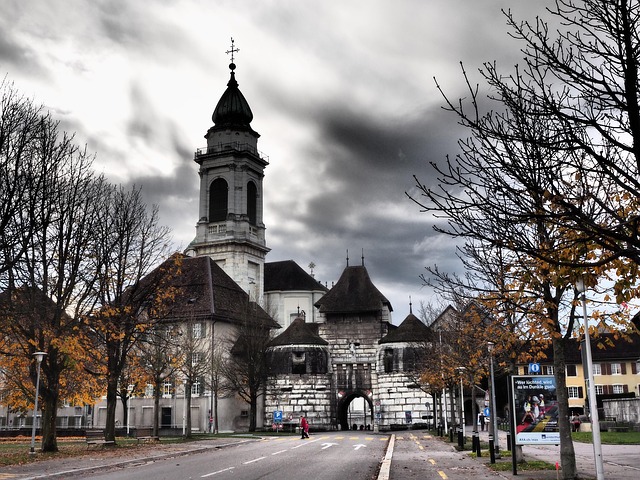The St. Louis Archdiocese scandal, a significant historical event, revolves around allegations of sexual abuse by clergy and subsequent cover-up. A specialized clergy abuse law firm in St. Louis, MO, has been pivotal in exposing these crimes and advocating for victims' rights. The scandal emerged from the late 20th century, when numerous priests were accused of misconduct with minors, leading to a pattern of denial. The Archdiocese's response includes out-of-court settlements and active defense strategies, raising questions about transparency and justice. These legal challenges highlight the crucial role of clergy abuse law firms in St. Louis, MO, in holding accountable those responsible for sexual abuse within the church.
“The recent revelation of widespread cover-up within the St. Louis Archdiocese has shaken the community, highlighting a dark chapter in its history. This article delves into the intricate details of the scandal, particularly focusing on the role of a clergy abuse law firm in St. Louis, Missouri. We explore litigation strategies employed by the archdiocese, their impact on victims and the broader community, and potential outcomes that could shape future prevention measures. Understanding these tactics is crucial in the ongoing fight against institutional abuse.”
Understanding the St. Louis Archdiocese Scandal: A Historical Context

The St. Louis Archdiocese scandal, involving allegations of widespread clergy sexual abuse and subsequent cover-up, has been a dark chapter in the region’s history. This crisis emerged as a national conversation about the systemic failure to protect vulnerable individuals within the Catholic Church. Over several decades, a prominent clergy abuse law firm in St. Louis MO, has been at the forefront of exposing these heinous crimes and holding accountable those responsible.
The scandal’s roots trace back to the late 20th century when numerous priests within the Archdiocese were found to have engaged in sexual misconduct with minors. As the truth came to light, it was revealed that church leaders had not only failed to address these issues but also actively transferred perpetrators to other parishes, endangering more children. This pattern of cover-up and denial sparked a firestorm of public outrage, leading to legal actions against the Archdiocese by survivors seeking justice and accountability.
The Role of a Clergy Abuse Law Firm in St. Louis MO

In the context of the St. Louis Archdiocese cover-up litigation, a specialized clergy abuse law firm in St. Louis, MO plays a pivotal role. These legal experts are dedicated to advocating for victims of sexual abuse perpetrated by members of the clergy. With extensive knowledge of canon and secular laws related to clerical misconduct, they guide clients through complex legal processes, ensuring their rights are protected.
A St. Louis-based clergy abuse law firm offers several strategic advantages. They possess deep insights into the specific challenges faced by survivors of clerical sexual abuse, enabling them to navigate the emotional and legal complexities of these cases effectively. Furthermore, these firms often have extensive resources and networks, facilitating access to support services for victims, which can be invaluable during the litigation process.
Litigation Strategies: Uncovering the Archdiocese's Response

The St. Louis Archdiocese’s response to clergy abuse allegations has been a subject of intense scrutiny, with many victims and their advocates calling for transparency and accountability. When faced with numerous lawsuits from individuals who claim they were abused by members of the clergy, the Archdiocese has employed various litigation strategies. One notable approach is their tendency to settle out-of-court, often discreetly, which can be seen as an attempt to avoid public exposure and further damaging scrutiny. This strategy, while offering a sense of closure for some victims, also raises concerns about ensuring justice and holding perpetrators accountable.
Moreover, the Archdiocese has been proactive in gathering evidence and building defenses, including challenging the credibility of accusers and their testimonies. They have engaged top legal counsel specializing in such cases, which hints at a well-planned and meticulously executed defense strategy. This level of legal resource allocation suggests a determined effort to protect the reputation of the church and its officials, while victims’ rights advocates argue that it may obstruct the pursuit of justice and truth.
Impact on Victims and the Community

The impact of the St. Louis Archdiocese cover-up litigation has been profound, affecting victims and the community at large. For those who have come forward to share their stories, the process has been emotionally taxing but also empowering. Many survivors report that seeking justice through a clergy abuse law firm in St. Louis MO has helped them regain a sense of control and closure, enabling them to begin the long journey towards healing.
The community at large has also felt the ripple effects. The litigation has sparked crucial conversations about the role of religious institutions in protecting their members, particularly vulnerable children. As a result, there’s a growing awareness and demand for transparency and accountability within the Catholic Church, not just in St. Louis but across the nation. This collective effort to confront historical injustices is instrumental in ensuring that such abuses are prevented in future generations.
Potential Outcomes and Future Prevention Measures

The outcome of such litigation can have profound implications, not only for the victims seeking justice but also for the future of similar cases. A successful clergy abuse law firm in St. Louis, MO, could set a precedent, compelling the Archdiocese to be more transparent and accountable for their actions. This might lead to improved reporting mechanisms and better protection for vulnerable individuals within the church community.
To prevent such cover-ups from occurring again, comprehensive reforms are necessary. These measures could include enhanced background checks for all clergy, mandatory training on recognizing and reporting abuse, and a more robust system for handling complaints, ensuring victims feel heard and supported. By implementing these strategies, the St. Louis Archdiocese can work towards creating a safer environment and restore trust among its congregations.





